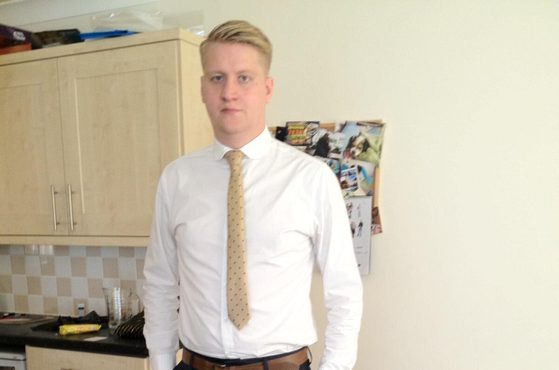
Medical & Clinical Negligence
Experts in justice for families affected by medical negligence or serious personal injury.
We make the difference. Talk to us: 0333 004 4488 | hello@brabners.com
AuthorsFiona TinsleyBecky Addison
11 min read

Recent revelations have raised concerns about patients who were subjected to prolonged temozolomide (TMZ) chemotherapy treatments at the University Hospitals of Coventry and Warwickshire NHS Foundation Trust.
These treatments were administered under the care of Professor Ian Brown “without any scientific evidence to support this practice”, according to the Trust’s Clinical Service Lead for Oncology. This has sparked an investigation into how many patients received unnecessary long-term chemotherapy and the potential harm that it may have caused.
As reported by the BBC, the Trust is "carrying out an internal review into what happened", with patients only finding out that they were taking unnecessary medication when Professor Brown "retired from being a practising doctor". Our own Becky Addison recently told the BBC that we "have a patient that goes back to treatment from 1998, so there is scope of 27 years where Professor Brown was using this prolonged treatment... We believe hundreds of patients may have been affected... How this fell under the radar at that Trust is beyond me."
We also appeared on ITV's Good Morning Britain on 6 August 2025 alongside patients who have been affected by this treatment, as well as on BBC Midlands Today on 2 October 2025.
In 2024, we were instructed on behalf of a patient who was under the care of Professor Brown (and his colleague Ian Edwards) at University Hospitals Coventry & Warwickshire NHS Trust.
Our client instructed us that they'd been informed by a Trust clinician that adjuvant temozolomide longer than twelve cycles isn’t recommended for brain tumours and there’s no scientific evidence that supports this practice. The client therefore alleged that they'd received unnecessary chemotherapy treatment for over 14 years. Throughout this time, they had to endure the cyclical adverse side effects of this chemotherapy treatment, which significantly impacted their physical and mental health, family life and work. They’re also understandably concerned about the long-term effects of taking this drug.
Fiona Tinsley and Becky Addison quickly went to work, arranging face to face meetings with this client and family affected and identifying suitable experts to provide independent opinion on the legal issues of this case as well as identifying a suitable barrister to work together as a team. We’ve extensively investigated what has been going on within this NHS Trust.
We've had the opportunity to speak with other patients who were also under the treatment and care of Professor Ian Brown and had also been subject to prolonged unnecessary chemotherapy. These cases involve individuals with brain and spinal tumours.
From these opportunities, we’re seeing recurring themes in their care, with treatment having continued despite radiology scans showing that the tumour is stable, no signs of tumour progression or recurrence throughout.
Many patients were told that they needed the treatment to stay alive, yet upon the hospital’s new oncology team re-examining the initial tumour histology from when patients were initially diagnosed, most of the diagnoses had significantly changed from the initial apparent grading to a lower grade and in one case showed no initial tumour at all.
For many, this revelation may come as a shock after years of believing that they were undergoing life-saving treatment.
Many of our clients have received letters from Jonathan Young — Chief Medical Officer at Coventry Hospital — confirming that their cases will be reviewed as part of the Royal College of Physicians' review, which is hoped to be completed before the end of 2025. We welcome the Royal College's review and eagerly await its findings and recommendations.
We're now calling for an extended patient safety review and independent investigation into this unnecessary chemotherapy regime and working closely with leading independent medical experts and specialist counsel, Louis Browne KC and Tim Wilkinson from Exchange Chambers. Their expertise has been instrumental in analysing complex clinical evidence and identifying systemic failures of care.
Richard Walker is a father of two who has bravely come forward to tell his story after reading about this case via the BBC. He thought that taking Temozolomide indefinitely “was his only option to stay alive”.
"I feel like I've put my illness and my life into the hands of somebody you naturally trust and then, to find out I didn't necessarily need 22 months of chemo, is very shattering and confusing”, Richard told the BBC.
In the same article, Fiona revealed that some of our clients have developed conditions like secondary cancer and liver damage that could be a result of prolonged Temozolomide treatment.
"We've got patients who've got mobility problems, long-term gastrointestinal problems”, Fiona said. “And when they queried — in particular the gastrointestinal problems — with clinicians at the Trust, they were dismissed as if it was nothing to do with the chemotherapy and not referred for investigation. They've had to seek out those investigations on their own."
Elena Adams was prescribed temozolomide after her 2016 brain tumour diagnosis.
As reported by the BBC, she underwent 66 cycles of treatment over the course of six years after initially being told that she had a "low-grade tumour and chemotherapy was not necessary". Her diagnosis "was later upgraded and she said she was told she would be on temozolomide for the rest of her life". Elena "was later diagnosed with the bone condition osteonecrosis and now struggles to walk".
The same BBC article features comments from Jo Harrison, who believes that her late husband Michael's (known as Jake) ten-year TMZ treatment for a brain tumour may have led to him developing dementia. Jo did raise her concerns about the treatment with hospital bosses, but they were dismissed.
"I just didn't feel being on these drugs for so long was doing him any good at all", Jo told the BBC. "I thought they were making his brain strange... It was very much like dementia. But compared to the dementia my brothers had, it was nothing like".
In another recent news article, the BBC spoke to two more patients of Professor Brown including Jonathan Jones, who "was diagnosed with anaplastic astrocytoma in 2007 when he was 17 and took temozolomide tablets until November 2023, when he was 33".
This has led to "dental problems, joint pain and anxiety issues", with Jonathan forced to take a significant amount of time off work due to the pain, sickness and tiredness that he suffered. Jonathan "was told he would need to stay on his tablets to stay alive, and when he questioned the treatment, he said the reply was: 'Do you want to die? If you don't carry on taking the chemo, you'll die'".
Jonathan bravely shared his story on BBC Midlands Today on 2 October 2025 (see below).
The Independent recently published Gayle's story. Sadly, she received more than 150 TMZ sessions over the course of 12 years, "leaving her with crippling side-effects including being housebound for life" due to "overwhelming fatigue". Her daughter, Kimberley, said that "She [Gayle] went from being like a young mum to like an old lady... she's lost the will to live".
According to the article, Gayle was told by doctors that she'd be on TMZ for life. She also claims that she was told about "being put on a clinical trial", though "no documents or consent forms" have yet been found.
Against her family's wishes — who'd always been told that Gayle would die if she came off the drug — Gayle eventually told doctors that she wanted to stop treatment. Yet "to her family's amazement, Ms Bodinnar gradually improved once she was off the drug". "I would like answers", said Gayle. "I don't think I'll ever trust any medical professionals again".
Kimberley has called for those responsible to be held to account. "What we've been through is just horrific... I don't want to know why they've done it, because it's a crime either way... it's that they admit that they've done it and it stops".

Temozolomide is a common chemotherapy drug used to treat certain types of brain tumours.
Typically, the course of treatment is short-term and based on guidelines developed from national and international clinical studies. However, in this case some patients were administered chemotherapy for extended periods, lasting several years. The situation came to light after a patient whose brain tumour had been successfully removed over a decade ago continued to receive chemotherapy despite their tumour remaining stable.
With Professor Brown’s retirement in late 2023, the Trust has begun reviewing all patients with similar cases who were under his care and subjected to the same prolonged chemotherapy. According to the Trust, this approach “was not in line with national and international guidelines and standards”, which has raised questions about the necessity of such treatment.
For patients affected by this unnecessary treatment, the journey to recovery now includes seeking justice. Our medical negligence solicitors — who specialise in such cases — are stepping in to offer support to those impacted by Professor Brown’s treatment.
Our experience in working on these cases so far puts us in the best possible position to help you make a successful claim and start to move forward in life. We’ve developed unique insight into the decision-making processes and practices of these clinicians, as well as wider understanding from other professionals both across the Trust and outside of the Trust.
If you’ve been affected by unnecessary and prolonged chemotherapy, be assured that we’ll react quickly and stand by your side to support you in seeking accountability, justice and financial compensation — from the very first moment you make contact with us throughout each step of the process.
If you believe that you or a loved one may have been subjected to unwarranted chemotherapy while being treated by Professor Brown, it’s essential to know your legal options. Pursuing a medical negligence claim may not only provide financial compensation but also hold medical professionals accountable for their actions.
Experiencing unnecessary treatment can dramatically impact your life — from disrupting your career, personal goals and family life to causing significant financial strain.
Our lawyers are experts in justice for families affected by medical negligence. We’re here to guide you through every step of the process, offering sensitive and thorough case analysis.
If it’s proven that Professor Brown or his colleague Ian Edwards contributed to harm through their prolonged chemotherapy regime, affected patients could be entitled to compensation for:
Unnecessary chemotherapy occurs when a treatment continues beyond the point of medical need, offering no further benefit to the patient.
Patients who were diagnosed with brain tumours and subjected to chemotherapy for more than one year without clear justification could be victims of unnecessary treatment. This can result in debilitating side effects and significant disruptions to daily life, including work, family responsibilities and financial stability.
The emotional toll of learning that a challenging cancer journey could have been avoided can be overwhelming for both patients and their families.
If you find yourself in this situation, it’s important to reach out for support.
We understand how difficult it can be to process the news that your treatment may have been unnecessary. We're experts in medical negligence relating to chemotherapy treatments.
Talk to us today for a free, no obligation discussion. Our experts will sensitively and confidentially explain how we can support you through this process and empower you to seek accountability, win justice, rebuild your life and recover compensation.
We're available to come and meet you wherever you're located. Give us a call, send us an email or complete our contact form below.



Fiona Tinsley
Fiona is a Partner in our litigation team and our head of medical negligence and serious personal injury.


Experts in justice for families affected by medical negligence or serious personal injury.

Our medical negligence team helped a 68-year-old man to be awarded £380,000 for a terminal oesophageal cancer diagnosis.

Your legal partner for life. Plan and protect your future today.

Access to award-winning barristers when you need it most.
Loading form...

Prolonged chemotherapy treatment at University Hospitals Coventry and Warwickshire has sadly had a devastating and irreversible impact on David's life.
Read more

Concerns about chemotherapy now point to systemic failings involving neuro-oncology clinicians, neurosurgeons, neuroradiologists and more at UHCW.
Read more

Patients affected by the extended use of adjuvant Temozolomide chemotherapy have received a letter from University Hospitals Coventry and Warwickshire NHS Trust.
Read more